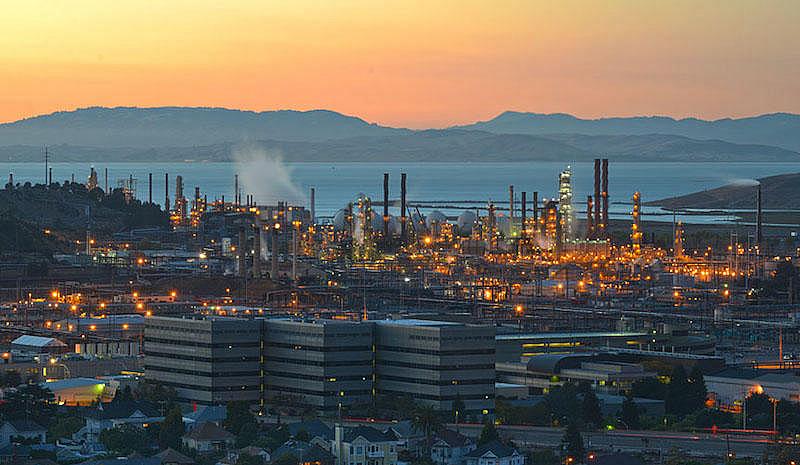Considering California's cap-and-trade program's local effects
This story was produced as a project for the USC Center for Health Journalism's California Fellowship.
Other stories in the series include:
Historic vote could freeze Bay Area refinery emissions levels

Not everyone is happy about the state’s new climate change laws.
Governor Jerry Brown signed two climate change bills into law last month, renewing California's cap-and-trade program. He says the program should be a model for the rest of the country in combating climate change. But some local environmental justice groups say that not only do the policies not go far enough to address the issue, they actually hurt local communities.
These environmental groups have been urging the regional air district to cap greenhouse gas emissions at Bay Area refineries to protect the health of people who live nearby. The groups have been working on this proposal for over five years. But these latest cap-and-trade bills specifically prohibit regional air districts from reducing carbon emissions at local refineries. The new bills say: leave the regulation to the state.
KALW's Health Reporter Marissa Ortega-Welch spoke with News Director Ben Trefny about what these latest climate change bills could mean for Bay Area residents.
Click on the audio player below to listen to the full Q & A.
[This story was originally published by KALW.]

